想要趁着周末或公共假期在国内旅游, 但只能想到槟城极乐寺、 吉隆坡双峰塔、 热浪岛, 又觉得这些地方太主流、 人又多、 而且没新鲜感了吗? 今天,小编就要来向大家介绍一些马来西亚可媲美国外、 鲜为人知的冷门景点吧·!
8 Easy Ways to be an Eco-Friendly Traveller in 2020
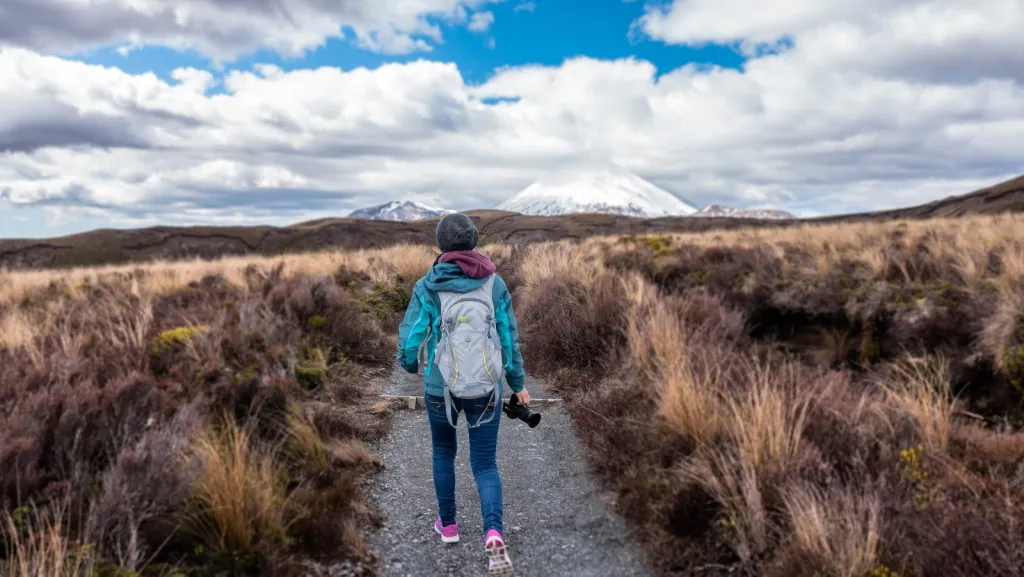
We love travelling, almost everyone does. But with the growing concerns on climate change and endangered animals, we can’t help but wonder if travelling is part of the problem, and if there’s anything we can do about it.
Turns out, there are plenty of easy ways for us to be eco-friendly travellers, and being sensitive towards the natural environment doesn’t actually mean having to compromise our long desired vacation plans either. Check out these simple steps below to make you a better traveller in 2020!
1. Bring your own cutlery and straws
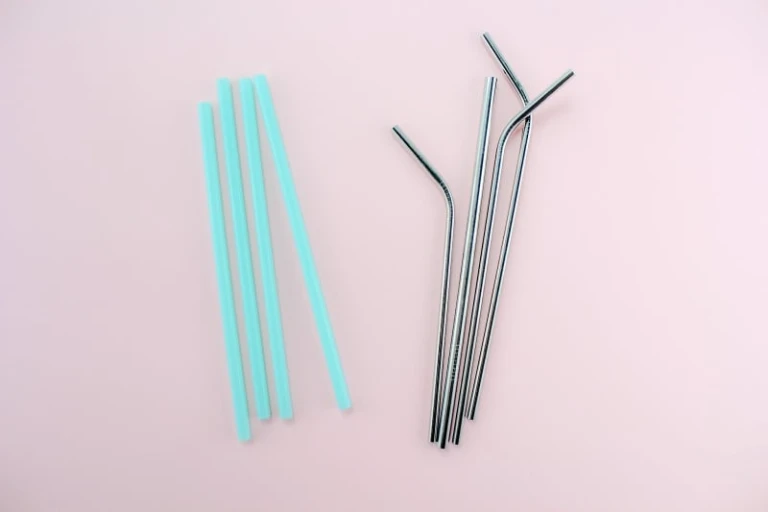
While travelling, we would most likely find ourselves using plastic straws and cutlery while we’re dining out. While these disposable cutlery and straws are convenient for us and cheap for vendors, single-use plastic products are detrimental to the wellbeing of the environment, and by extension, our own health. I think, in 2020, we can definitely do better.
A good alternative is to bring your own reusable cutlery and metal straws along in your travels. Not only does this help reduce the reliance on single-use plastic, you can also reuse them and help reduce the amount of trash that is thrown away. While it may sound like a hassle to carry your own cutlery and straw around, it can actually provide more convenience for you, especially when you’re out feasting on street food, since some vendors have started to do away with plastic cutlery!
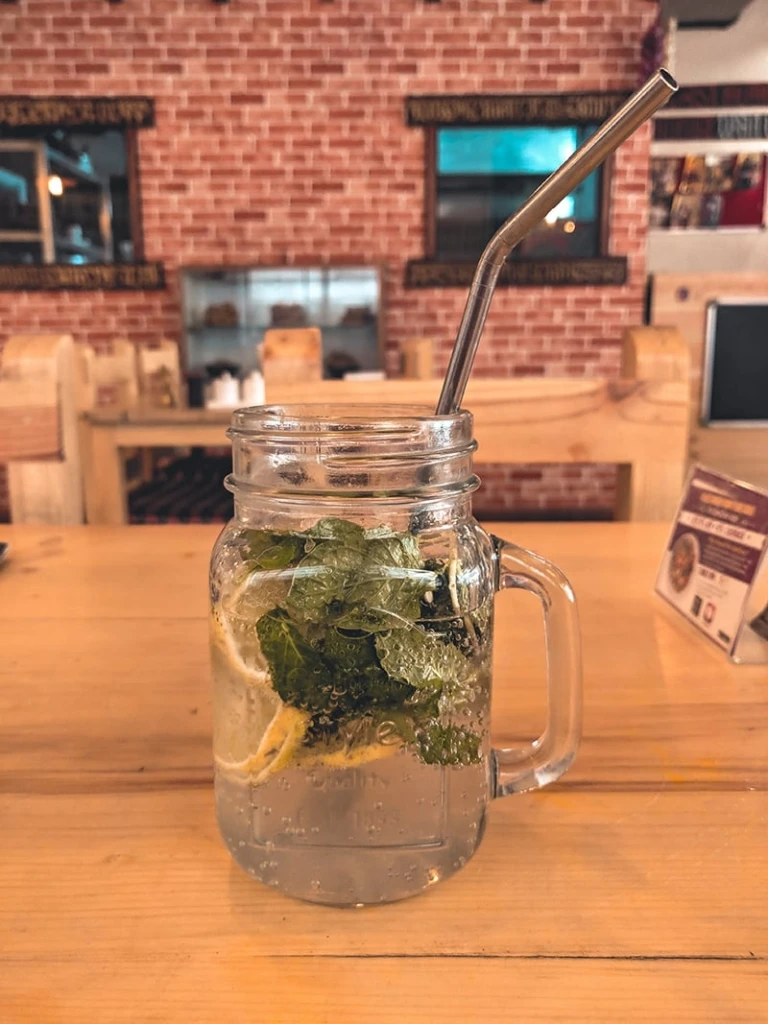
2. Bring your own bottle or reusable cups
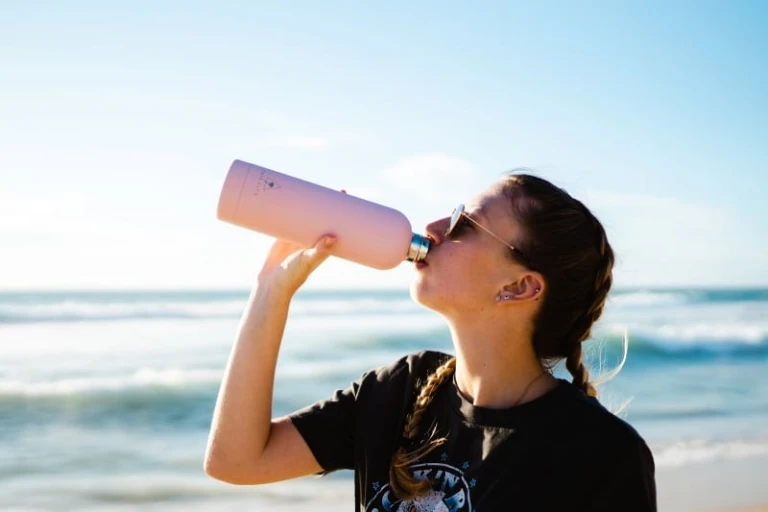
It’s important for us to stay hydrated while travelling, but it’s also important to do it responsibly. Instead of buying bottled water all the time, why not bring your own reusable bottle? Not only will you be reducing the amount of plastic waste, you can also save some money by refilling your bottle instead of buying a new one. A lot of developed countries provide water filling stations in public spaces where you can refill your bottle.
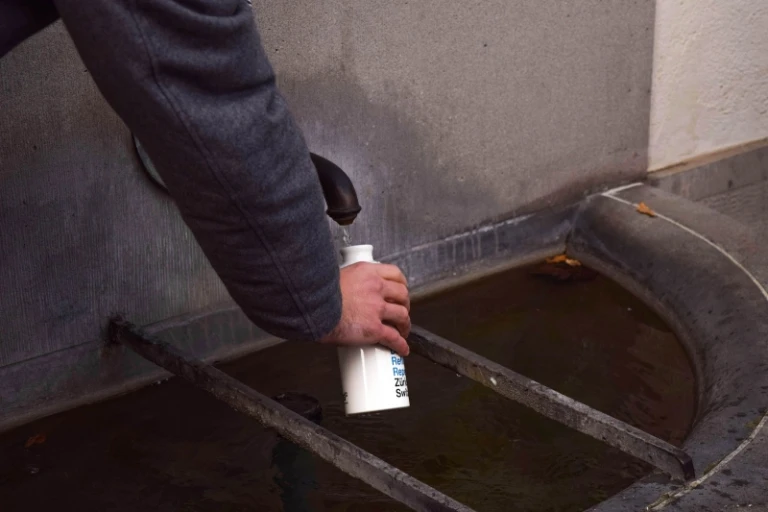
Understandably, you might have doubts over the cleanliness of the water. Put your mind at rest. Most countries/cities that provide public water filling stations do so with the knowledge that the water they provide is safe for consumption. However, if you’re still a little unsure, just refill your bottle back at your accommodation.
And if you are a boba lover or a coffee lover like me, we can do our part too! Many boba shops and coffee shops these days provide some discounts on your purchase when you bring your own reusable cups or containers. Now that’s a win-win situation!
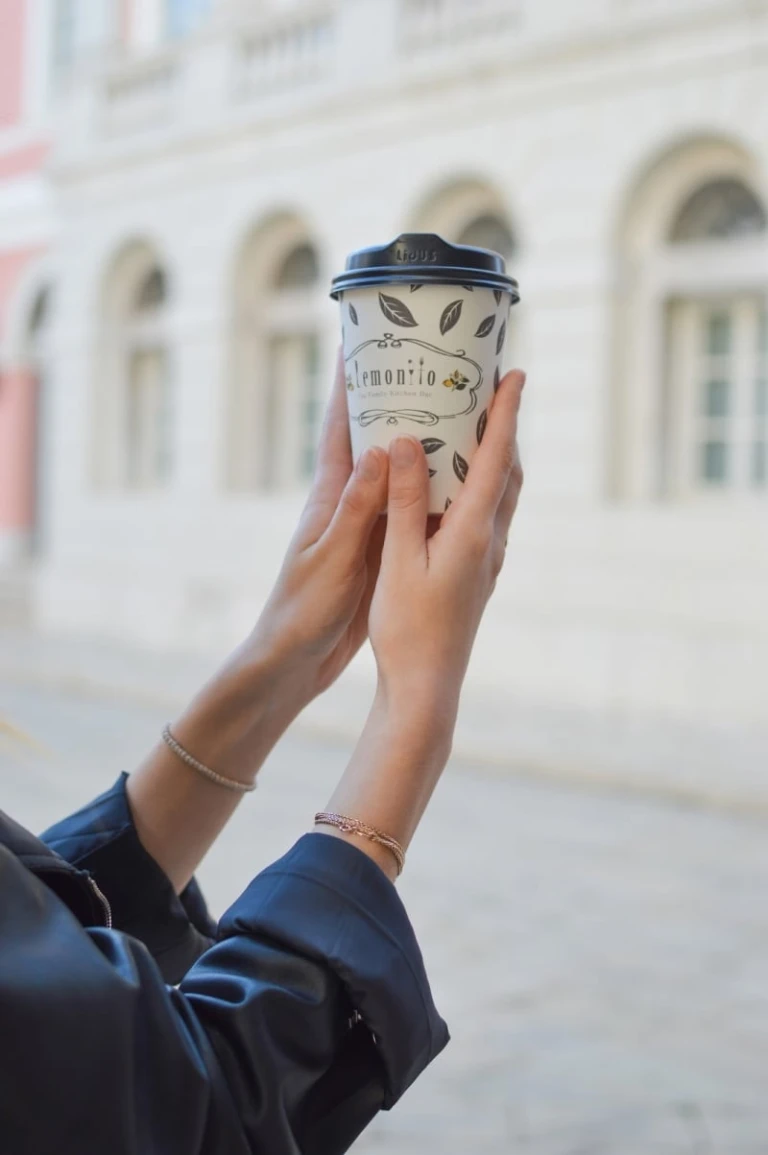
3. Have second thoughts about what you really need
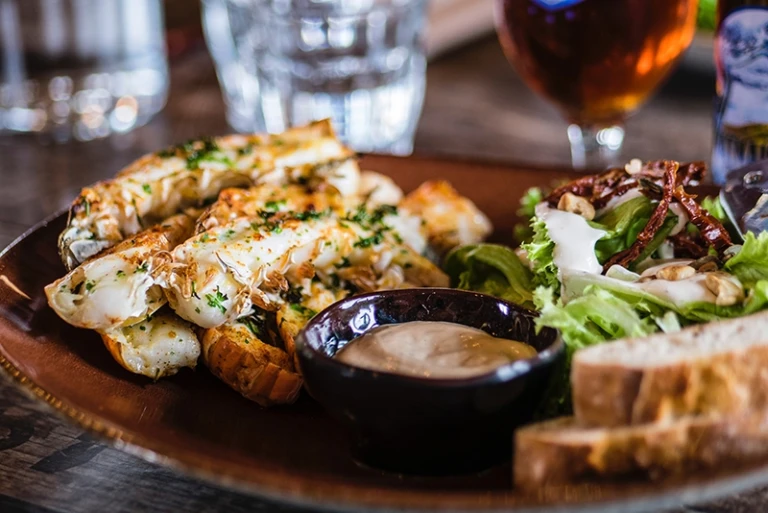
In order to win customers’ hearts, restaurants typically provide a lot of items for free, such as sauces or seasoning packets, wet tissues, plastic cutlery, plastic gloves etc. While these items definitely make our dining experience better and easier, given the state of the world today, we’d do well to ask ourselves if we really need all of these “freebies”.
We usually receive way more sauce packets than we actually need, and the rest get thrown away. We also tend to use plastic gloves provided when we are eating our favourite fried chicken, when could easily just wash our hands at the sink right before and after our meal.
While there’s nothing wrong in using any of these freebies, it’s good practice to really consider if you really need them, and if there is any alternative. Reducing unnecessary waste can go a long way. Of course, the same applies to plastic shopping bags.
4. Avoid attractions or activities that exploit local animals and wildlife
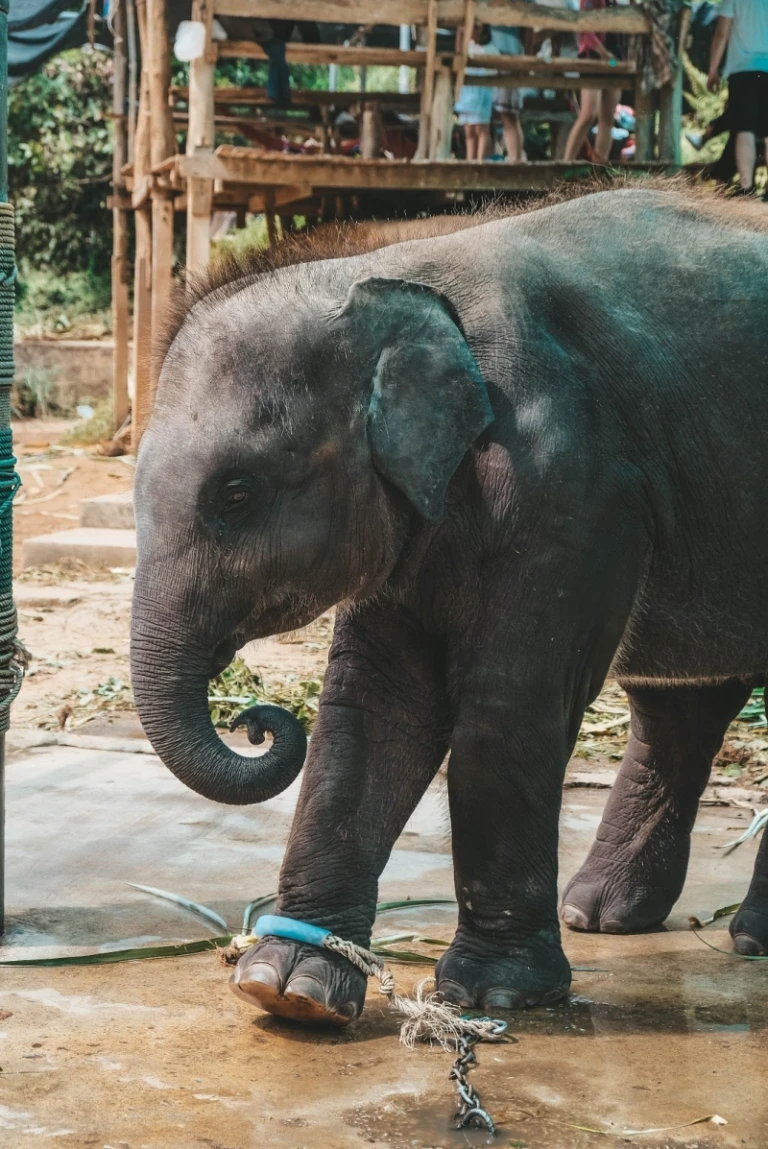
From elephants and tigers in Thailand, to dolphins and bears in Russia, there are a lot of companies and establishments that provide tourists an opportunity to get close to wild animals as well as an awesome post for your Instagram feed. However, you’ve likely also come across plenty of articles or blogs that shed light on the darker side of animal tourism, mostly on how animals are being abused and trained to cater to the whims and fancies of tourists.
Understandably, there may be some of us who get excited when given a chance to interact with wildlife we normally don’t get a chance to see in our own country, there should be a line drawn when it comes to supporting attractions that offer such opportunities irresponsibly. These animals being used to entertain tourists are often bred in captivity since birth, and ‘trained’ to perform tricks and act tame towards humans. When they are not posing for photos or painting pictures, the animals are likely confined in small cages with little room for movement, usually in isolation.
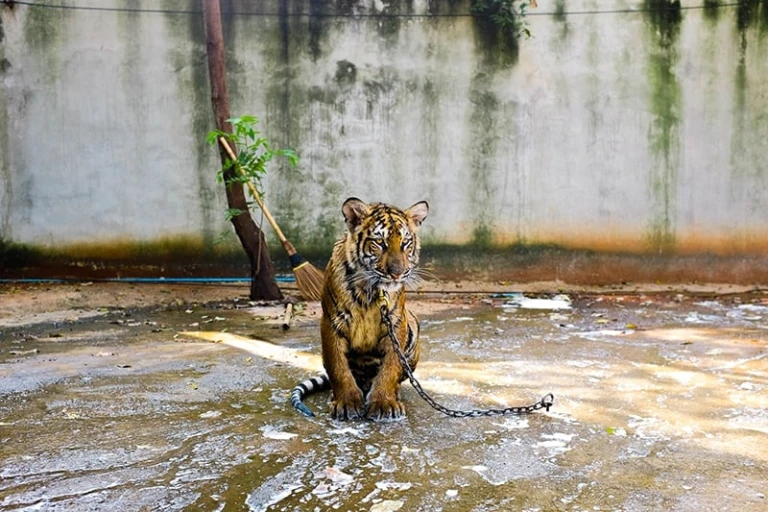
As laws on animal protection and conservation in different countries are distinct, some companies will look for loopholes to continue operation. The least that we can do as travellers is not to support and participate in these activities that are no different than animal abuse. There are tons of other ways for you to enjoy your holiday in Thailand without riding on top of an underfed, overworked elephant. The same goes for any other destination.
5. Instead, support animal sanctuaries and other nature escapes
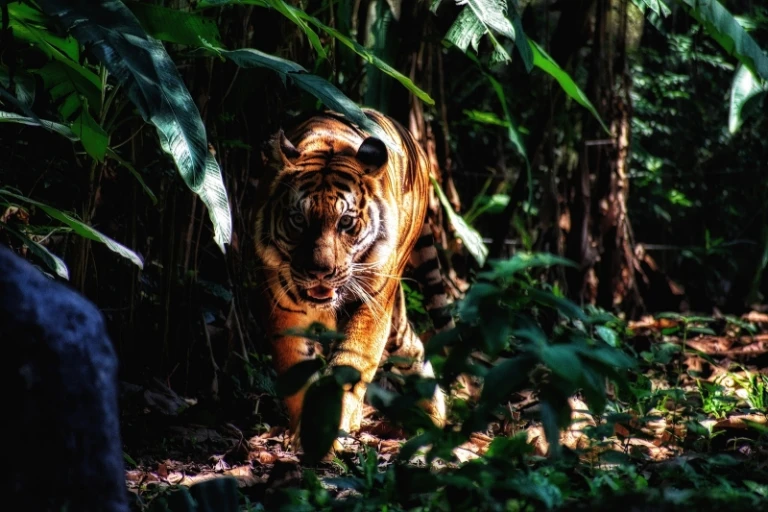
Of course, there’s nothing wrong with satisfying your curiosity towards wildlife we rarely get to see with our own eyes. But there are ways to ensure that satisfying your curiosity doesn’t inadvertently make life more precarious for our friends in the animal kingdom.
Look for non-profit organizations or sanctuaries that actively participate in efforts to conserve and protect rescued and wild animals. You will be able to see the animals in their natural habitat, while contributing to the good cause. However, fake ‘sanctuaries’ are also on the rise, and they have little to no intention in protecting the animals. How do we differentiate authentic sanctuaries from the fake ones?
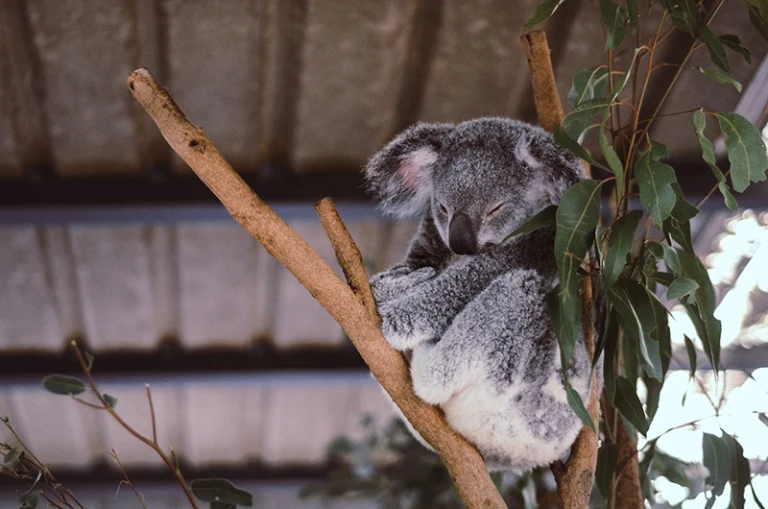
Look for red flags such as the offered opportunity to pose with the animals for a photo, or to get up close with the animals to either feed or touch them. If direct interaction between tourists and the animals are present, it is a likely signal that some measure of conditioning has been applied to the animals to ensure they “behave” around tourists.
A proper sanctuary is one that lets the animals roam free in their own natural habitat with minimal interaction with humans. Check out legitimate websites such as GAFA or World Animal Protection to locate sanctuaries that you can visit and contribute.
6. Watch what you eat
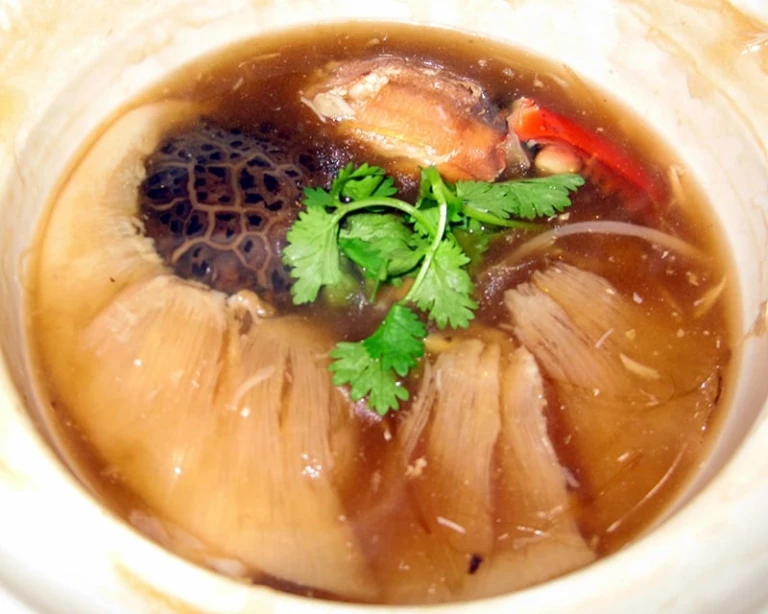
One part of a truly enriching travel experience is to taste the local delicacy because it can tell you so much about a culture and a place through the flavours alone. As much as we would want to have an amazing gastronomic experience when we travel, we should still pay attention to what we eat, not because of health concerns, but because of its effect on the environment.
In Malaysia, we can find shops or restaurants that sell and serve shark’s fin soup and turtle eggs. Though these dishes have become less common in recent years, it is still possible to find them if one were to look hard enough, since there are currently either no laws or lax legislation that govern the sale of these exotic dishes. These delicacies is a growing concern amongst the public due to the cruel way shark fins are harvested, and how it has contributed to the decline in turtle population.
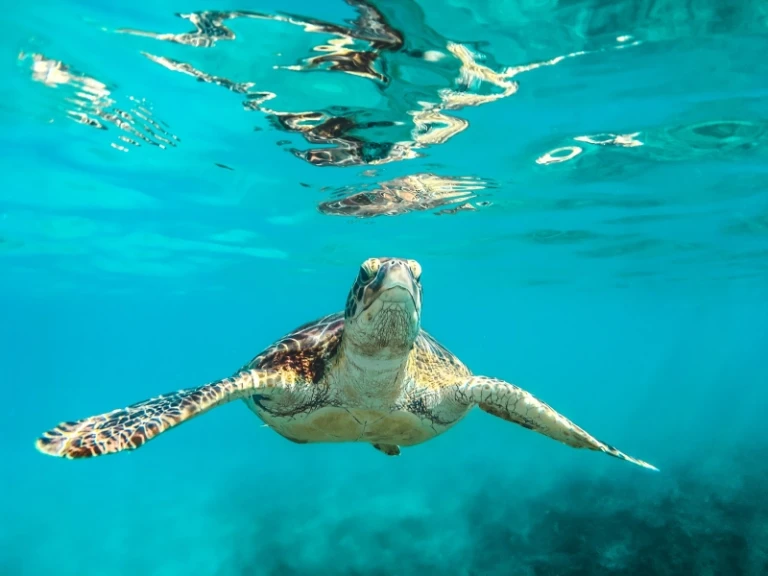
Of course, turtles and sharks are not the only animals that are being severely threatened by a tourist’s dinner plate. Pangolins, flying foxes, crocodiles, sturgeons, and bluefin tunas are some other examples that are facing similar threats.Thus, the least that we can do, is to avoid eating any of these endangered animals. As they say, when the demand stops, so will the killing.
7. Be careful with you sunscreen
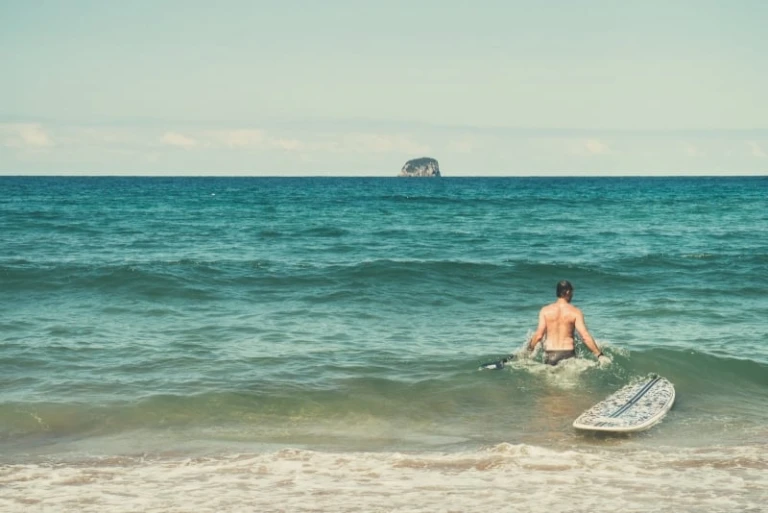
Heading to the beach for a peaceful getaway is quite an experience, isn’t it? Walking on the fine sand, feeling the cool rush of the ocean water, it’s definitely one of life’s most enjoyable moments. Of course, most people and pharmaceutical companies will tell you that while a day out in the sun on the beach is all well and good, you absolutely must use sunscreen to protect our skin from damage and exposure to the sun. Right?
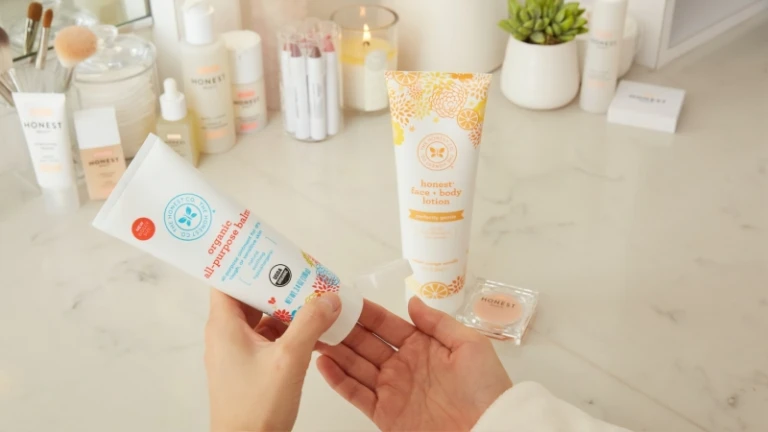
However, did you know that most sunscreens contain a chemical component called oxybenzone which can severely harm the coral reefs, leading to a phenomenon called “bleaching”? This is essentially how coral reef colonies die, decimating the marine ecosystem which rely on them to thrive.
A simple and effective solution to this problem, is to simply check the contents of a sunscreen before buying it. Do a bit of research on brands that produce environmentally-friendly products and utilise them more. Our oceans will thank you.
8. Leave nothing behind but your footprints
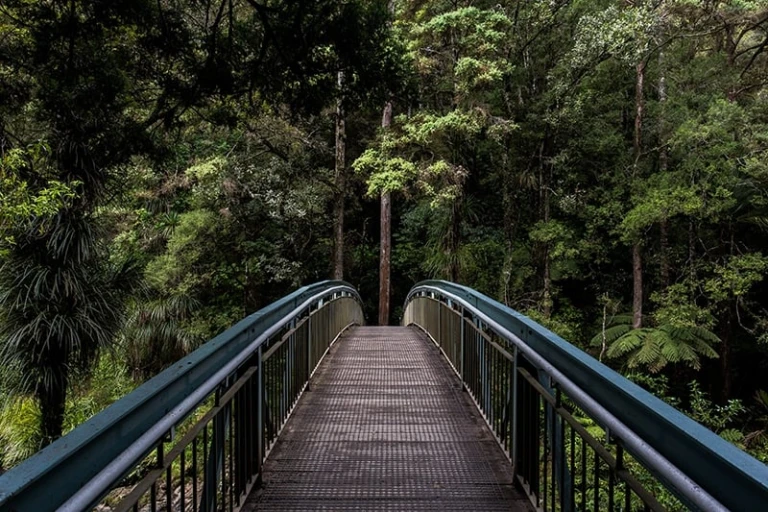
We visit a new place for its natural beauty, so it makes sense for us to leave the place the same way as when we first visit it, so others can have a good experience too. Avoid leaving permanent damage to the local environment, recycle whatever materials that you used during your travels, properly dispose of trash, and leave nothing behind but good memories of your travels. If you can afford to contribute more, such as volunteering and supporting local non-profits, even better.
So those are the few ways for you to be an eco-friendly traveller. Travelling is supposed to be fun, meaningful, and fulfilling. By making small changes in our ways of travelling, not only can we gain an amazing experience, but the people we meet and the places we visit on our journey too can benefit from our efforts.
Published on
About Author
Hendri Sabri
RECOMMENDED READS
本地旅游好好玩! 马来西亚 10个 2025 必游的仙境 【Pulau Langkawi爆红住宿TOP 8】超高颜值的酒店,照片请来一波! 9月16日。。。约吗?
【亚洲跨年烟花TOP 8】带上家人和另一半欣赏爆炸式的浪漫! 每年的跨年大集会, 除了有歌舞升平的好气象之外, 还会有各种烟花大会, 迎接2020的到来~ 为你推荐这些超吸睛的烟火会, 还不赶快带上你最亲爱的去欣赏这份免费的浪漫情怀?!
【冬季篇】日本必去打卡的秘境TOP 10✅ 日本, 是亚洲一个神奇的旅游胜地。 但凡去过一次, 就会上瘾, 然后就会想要探索那里的春夏秋冬。 日本的冬季, 可以达到零下的温度, 甚至有很多越冷越受欢迎的景点。值得一提的是, 日本的冬季集浪漫、 萧条、 迷人为一身。 你也可以趁着冬季来到北海道滑雪, 或是泡一个美美的温泉! 无以伦比的旅行就此开始。
【学生党付得起的价位】新加坡超美味的豪华美食清单TOP 8! 以前总听别人说新加坡的食物不好吃, 那是因为不会吃吧! ~当然, 要享受到顶级的服务和美食, 钱包就一定不能太省啦! 毕竟马币兑新币汇率真的太高了。 不过, 为了吃真的不能省。 如果接下来想逗女朋友开心, 或是想慰劳一下家人, 就去邻国趴趴走吧!
RECENT ARTICLES
胡志明市逛街攻略:10 家必逛的精品店与购物天堂! 真的可以带上空的行李箱到胡志明了!
首尔圣水洞 18个必逛打卡点:潮牌景点、爆红美食完整攻略! 18个必逛打卡点,保证让你逛到尽兴!
日本将调高游客离境税和签证费:大马旅客需注意的事项 趁着还没调高之前,到日本旅游咯!
2025 年马来西亚旅游业“火”出圈,游客量称霸东南亚! 是时候骄傲一下了!
Scoot 新增印尼四航点:马来西亚出发单程机票最低 RM239 起! 大马人又有更多便利和优惠啦!

